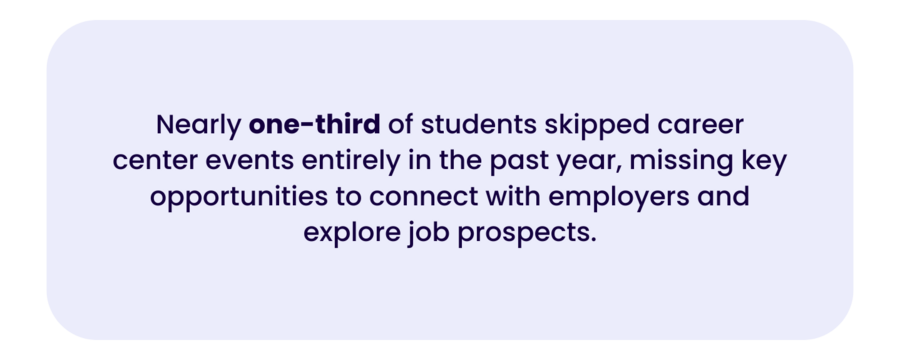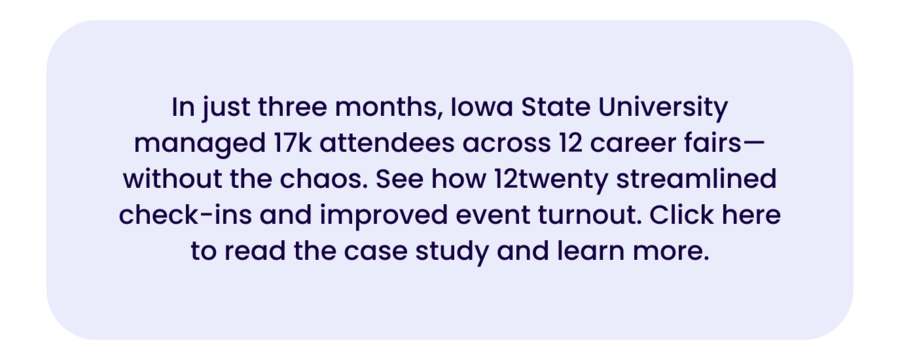Stop Getting Ghosted: How to Bring Students Back to Career Events




Career event no-shows aren’t just frustrating—they waste resources and weaken employer relationships. Instead of relying on penalties, career centers can use data-driven insights and student-first strategies to boost attendance and create events that feel too valuable to miss.
If you manage a career center, you’ve likely encountered a recurring challenge—students register for career fairs, workshops, and networking events, but when the day arrives, attendance falls short. RSVPs often act as placeholders rather than commitments, making it difficult to plan effectively.
Low turnout isn’t just frustrating—it disrupts logistics, wastes resources, and weakens relationships with employers. No-shows can mean underutilized spaces, uneaten catering, and presenters addressing a much smaller audience than expected. When attendance drops by 30%, 40%, or even 50%, it raises an important question: what’s causing the disconnect, and how can career centers encourage real engagement?

Some career centers have implemented penalties to curb ghosting—restricting access to services, requiring apology letters, or flagging repeat offenders. While these measures may deter some students, they don’t necessarily foster long-term engagement. If students view career events as just another requirement rather than an opportunity, attendance policies alone won’t solve the issue.
A more effective approach is to reconsider how events are structured and communicated. Before assuming students are unreliable, career centers should ask:
Data from 12twenty demonstrates the direct benefits of career center engagement:
These insights can be powerful marketing tools. When career centers use data to communicate the tangible benefits of participation, students are more likely to view events as essential to their professional growth rather than optional programming.
Encouraging attendance is not just about promotion—it requires listening to students and refining strategies based on their needs. Career centers can gather insights through:

Career centers that prioritize clear communication, data-driven value propositions, and student-driven feedback will create events that feel essential rather than optional. By shifting the focus from penalties to engagement, no-shows can decrease—and career readiness can take center stage.
Gather alumni data, generate compliance-ready reports, and gain insights to improve outcomes—all in one platform.